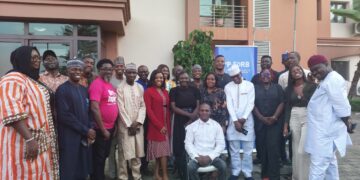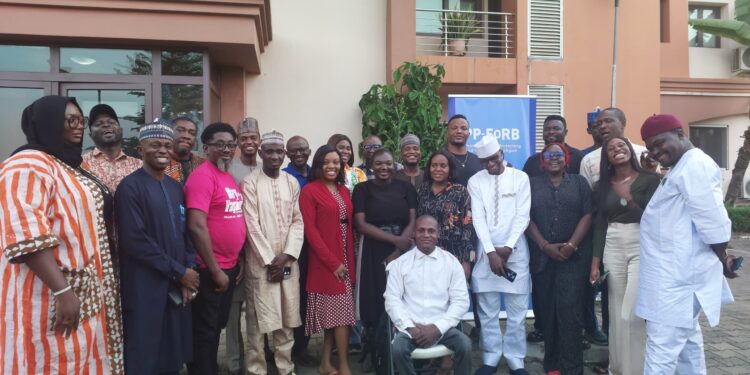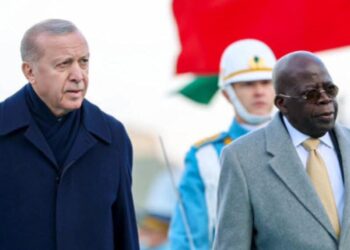By Ere-ebi Agedah Imisi
Amidst rising concerns over religious tensions and the media’s powerful influence in shaping national discourse, Search for Common Ground has stepped up efforts to strengthen responsible journalism with a Refresher Course on Conflict Reporting. From April 23 to 24, 20 journalists from across Nigeria gathered in Abuja for the intensive two-day training, organized under the “Promoting and Protecting Freedom of Religion or Belief” (PPFoRB) project, with support from the Dutch Ministry of Foreign Affairs.
Project Manager of PPFoRB at Search for Common Ground Nigeria, Gaius Dachet, explained the critical objectives of the three-year initiative, which spans all 36 states and the Federal Capital Territory “Our first goal is to establish an early warning and early response platform to prevent violations that could escalate into violence. A key tool for this effort is a 24-hour toll-free hotline, 080-0000-2233, which citizens can call to report any threats or violations relating to religious freedom’’ Dachet said.
Beyond prevention, the project also focuses on responding to victims of religious violations. According to Dachet, support is provided through legal aid, livelihood assistance, shelter, and psychological counseling. “Victims whose rights have been trampled due to their faith or beliefs are not left alone. We work with lawyers, counselors, and other stakeholders to offer them the help they need,” he said.
The third pillar of the project emphasizes public enlightenment, aiming to correct misconceptions and stereotypes that often fuel religious tensions. “This is why the media is crucial,” Dachet noted. “Through responsible reporting, journalists can change perceptions and promote peaceful coexistence.”
Also speaking Senior Media Officer for the project, Katlong Dasat, explained that the training aimed to refresh the journalists understanding of conflict-sensitive reporting and common ground journalism. “As journalists, they have the power to build or break societies. We are equipping them to be sensitive, especially in how they craft headlines and report religious issues,” Dasat said.
She emphasized that the project is not a religious endeavor but a human rights initiative, anchored in Article 18 of the Universal Declaration of Human Rights and Nigeria’s Constitution. “Freedom of religion or belief is a fundamental human right tied to freedom of expression, movement, and association. Every human being is entitled to it by virtue of their humanity,” Dasat added.
Dasat also praised the impact of previous trainings, noting that many participants had become FoRB champions within their media organizations, correcting potentially inflammatory headlines and fostering behavioral change among audiences. “It’s like a drop in the ocean, but with persistence and the support of more journalists, the impact grows stronger,” she said.
Additionally, Dasat urged the participants to continue as ambassadors of religious freedom, using their platforms to advocate for tolerance, respect, and human rights.
Meanwhile, the PPFoRB project also collaborates with social media influencers to extend its message and promote the toll-free short code, 7224, for swift action in cases of religious rights violations. In one notable success, a life was saved in Sokoto after a distress call through the hotline helped prevent mob violence.
With ongoing efforts like these, Search for Common Ground hopes to build a more tolerant, peaceful Nigeria where everyone’s right to belief is protected and upheld.



































